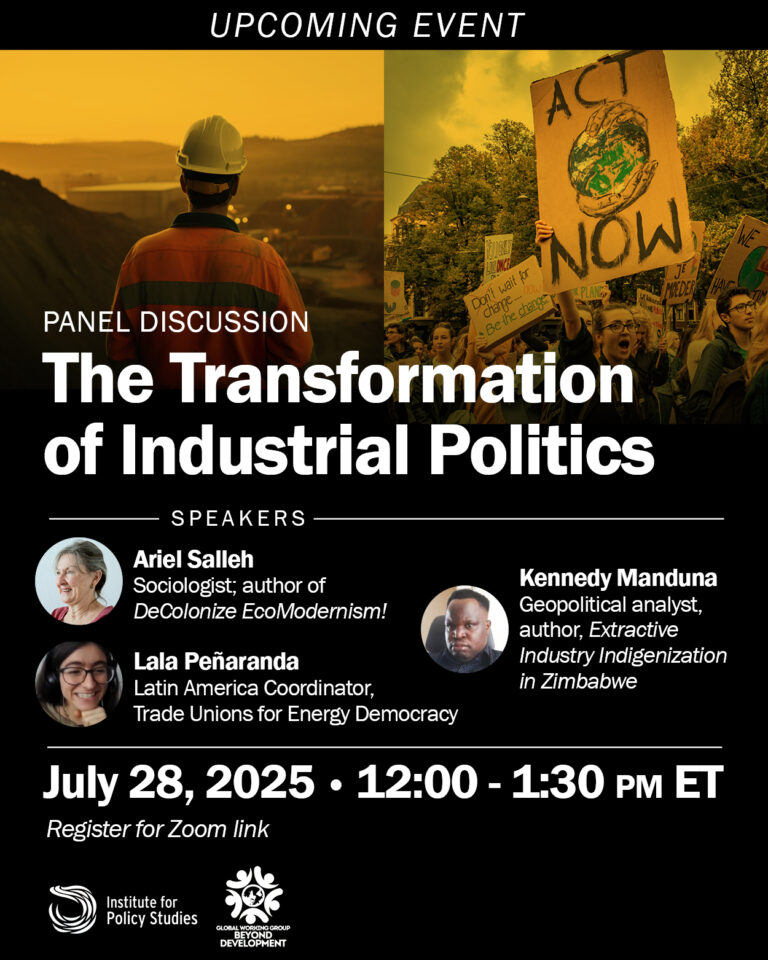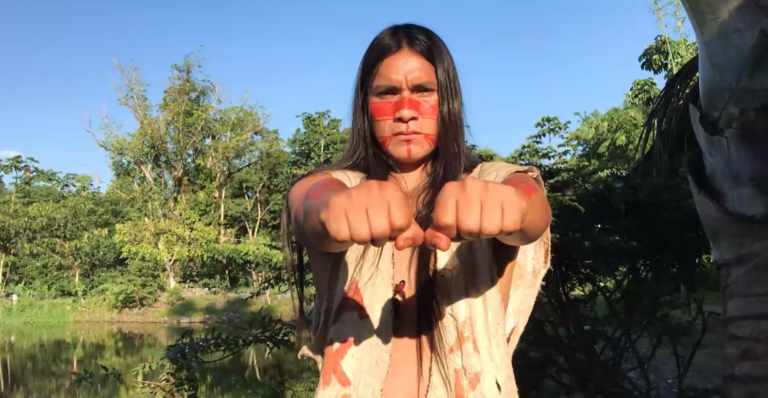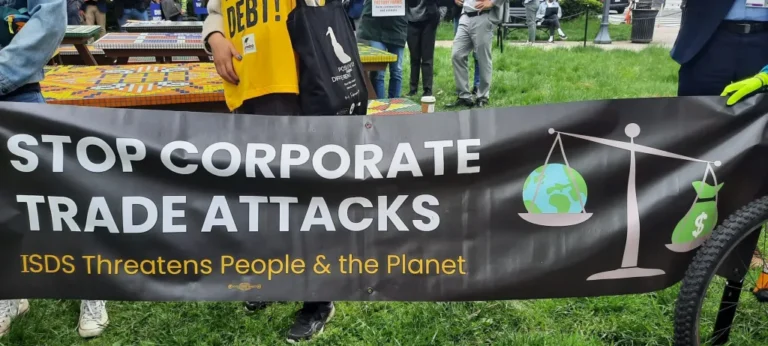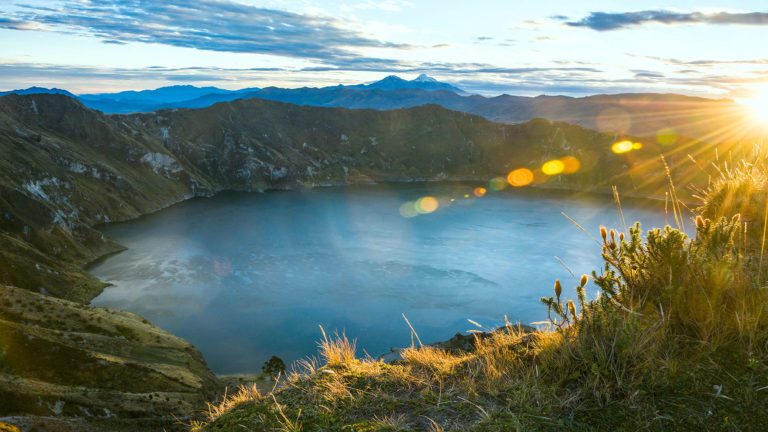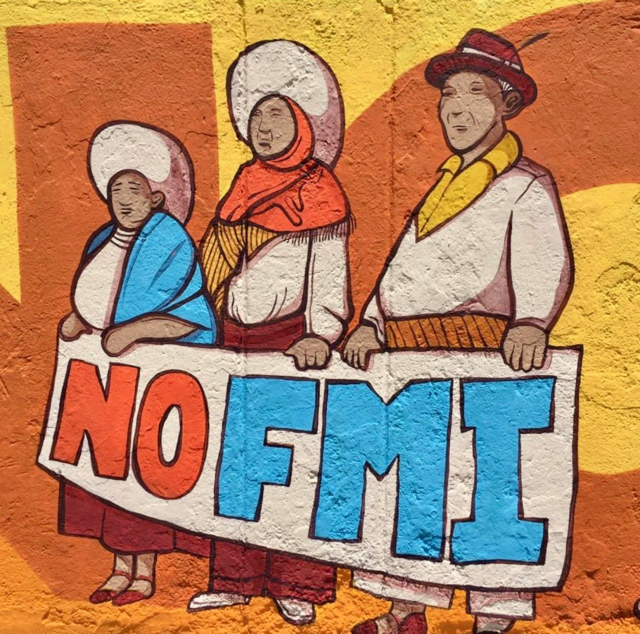Which democracy for systemic transformation, or how to cope democratically with a dying civilization?
A critical global dialogue on democracy
by Miriam Lang
We are currently experiencing the most serious crisis today’s dominant civilization has brought about. A civilization that is modern and colonial simultaneously, deeply marked by patriarchy, built on the invention of race, caste and a specific form of state, and capitalist class relations, as well as on the destruction of nature. COVID-19 has not only killed hundreds of thousands and brought a frenetic, it has halted the globalized capitalist economy in what economists call as the most severe recession since capitalism exists. If we want to go on living together on this planet, as human societies sharing one habitat with all other species, we simply cannot pursue the same path.
One of the biggest challenges the Corona-crisis highlights is around democracy. Democracy not understood as a set of institutions or procedures, but as the means we create for ourselves to make collective decisions about our lives and the lives of those generations who follow. The pandemic has boosted and legitimized top-down solutions, highlighting the role of national governments and international institutions as the World Health Organizations, but at the same time, it has shown the advantages that organized communities at the grassroots have if they practice self-rule (variously called autonomy, self-determination, etc.) and food/water/energy/health sovereignty.
Before the COVID-outbreak, the Global Working Group Beyond Development had already decided to dedicate a longer period of work and reflection on the topic of democracy. Or to the question of how, under the current conditions in different parts of the world, different dimensions of democracy could be deepened, in order to regain control over our own lives that seemed increasingly appropriated by the 1%. The coronavirus has added urgency to this collective challenge in a world ruled by 21st century capitalism. Thus, we invited thinkers and activists from around the world to contribute to a critical global dialogue around democracy.
Here are some of the questions which motivated this initiative: Is democracy a stronghold of social struggles, or is it rather an institutional framework imposed by neo-colonial statism and capitalism? Why are fascism and different kinds of authoritarianism coming back through elections? How can the scandalous inequality that characterizes contemporary capitalism and severely limits democratic decision-making, be strongly dealt with? What do we understand by democracy and what not, in our respective contexts? How can we strengthen processes of collective self-determination, including different languages of dignity and self-rule (swaraj, buen vivir, ubuntu, etc) that exist in different cultural/socio-historical/civilizational contexts of the pluriverse, which might differ from the dominant language of liberal democracy?
To nourish our collective reflection, a theoretical contributions from Gustavo Esteva (Mexico) brings to the fore Ivan Illich’s intellectual heritage, while Soumitra Gosh (India) asks about the role of social movements in democratic radical transformation.
We also wanted to shed light on ongoing struggles in different parts of the world and ask about the role of different scales in systemic transformation. For instance, how can local struggles irradiate toward regional or national changes? What examples do we have for this? Neema Pathak Broome, Shrishtee Bajpai, Mukesh Shende and Mahesh Raut from India look into a fascinating case of scaling out transformation instead of “scaling it up”, as is so often proposed. Raphael Hoetmer from Peru explores the experience and impact of local consultations against mining that have proliferated in Latin America. Maxime Combes analyses the challenges of the Yellow Vests movement in France. These articles will be released progressively.
We have invited comments from other parts of the world to these contributions, which you will find in the sidebar on the right.
Our series includes short case studies, in text and video, which highlight concrete experiences of democratic transformation in different aspects or realms of life. For example, Ibrahima Thiam shows the resistance to a power plant in Senegal, Kitti Baracsi shares her insights about transforming European school education. Iokine Rodriguez and Mirna Inturias describe the kind of democracy practiced autonomous indigenous territories in Bolivia, and Arturo Guerrero Osorio shows how a reconstruction process after an earthquake in Mexico was transformed in a democratic manner. Beatriz Rodriguez-Labajos will finally analyse how artistic activities can power anti-mining struggles in different contexts.
We warmly invite you to read and share these pieces, which were produced to contribute to collective learning processes around systemic transformation.
Miriam Lang teaches at Universidad Andina Simón Bolívar, Ecuador. She uses decolonial and feminist perspectives to study political ecology.

